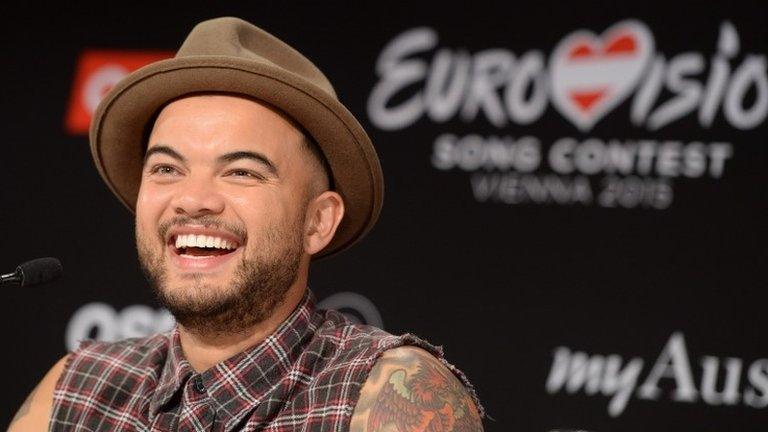Eurovision Song Contest will be signed for the first time
- Published
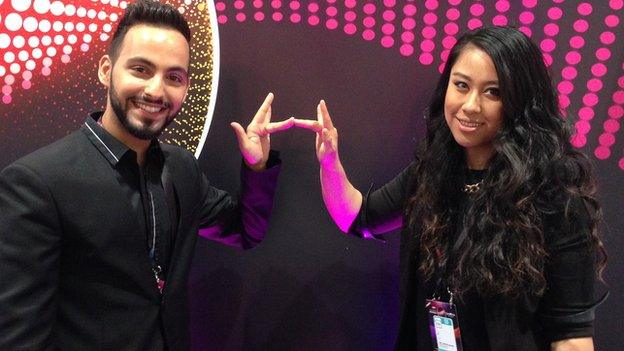
Delil Yilmaz and Alice Hu are among the performers translating the performances for a deaf audience
For the first time, the Eurovision Song Contest is being presented for deaf people in International Sign Language.
A team of six deaf artists and two hearing interpreters are performing at the semi-finals and the Grand Final.
Austrian broadcaster ORF said it was inspired by the victory of Conchita Wurst last year to make the contest even more inclusive.
"Eurovision is European - so let's make it for the deaf community too," said ORF's Eva-Maria Hinterwirth.
"It is always said music is a language that is understood by everyone, so we thought, let's make it reality and bring music closer to deaf people."
The project is all about storytelling, she told the BBC. "The interpreters don't translate the lyrics, they tell stories and convey the emotions behind the songs."
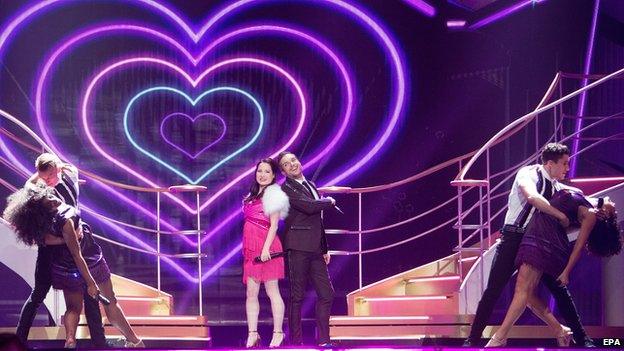
This year's UK entry Electro Velvet have been rehearsing in Vienna ahead of Saturday's grand final
Delil Yilmaz, a sign language interpreter who can hear, explained his team's approach to the UK's entry, Still in Love with You, external, by Electro Velvet.
"It's a very energetic song about a man and a woman who are in love. In these three minutes they are proving their love."
"The first twenty seconds of the UK song is only instrumental music, so you can't sign piano or violin.
"This is information that is not really necessary for someone who has never heard a tone in their life. You just have to put the emotions behind those instruments into a story," he said.
"When I turn to the right, I act like a man, very macho with a beard and when I turn to the left side, I am the woman with make-up and perfume. "
Kathrin Zechner, the managing director of ORF TV, said the deaf performers were not there to steal the show.
"They are supporting and interpreting for the artist and the viewers. They are stars but they are not ego-centric; they're spreading the emotion."
Alice Hu, one of the deaf performers, said one of the hardest things was learning how to move in time to the beat.
"You can imagine, I can't hear and I have to feel the rhythm. Delil, the only hearing one, really helped me and told me to move a bit more or less. We worked a lot and had so much fun."
Nine countries, Austria, Denmark, Germany, Finland, Latvia, Norway, Sweden, Switzerland and Slovenia are broadcasting the International Sign Language performances, which will also be live-streamed on eurovision.tv, external and ORF, external.
You can see a preview of the interpretations on the contest's YouTube channel, external.
- Published20 May 2015
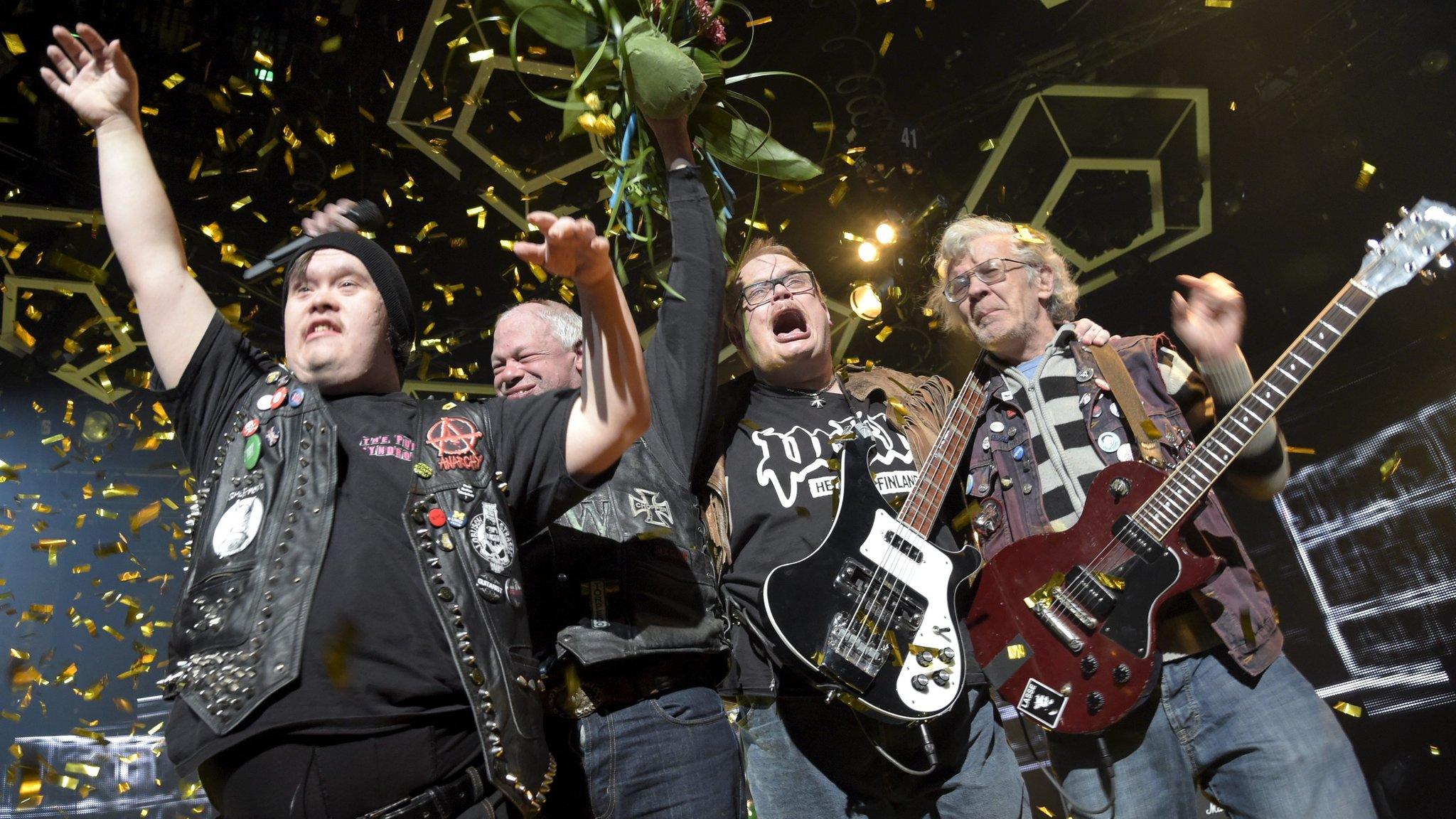
- Published24 May 2015
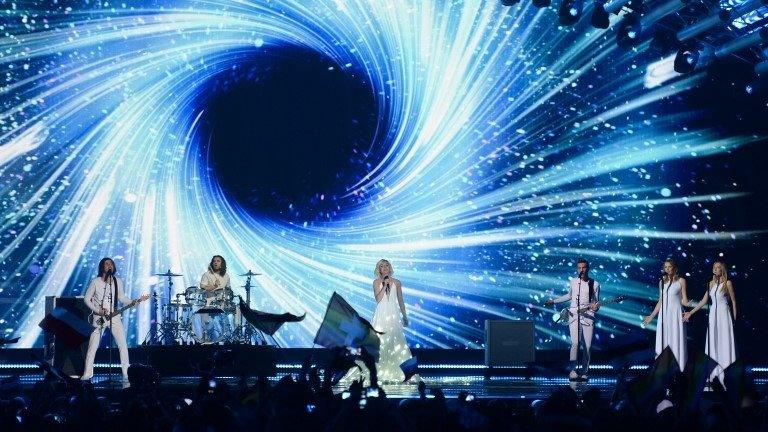
- Published19 May 2015
